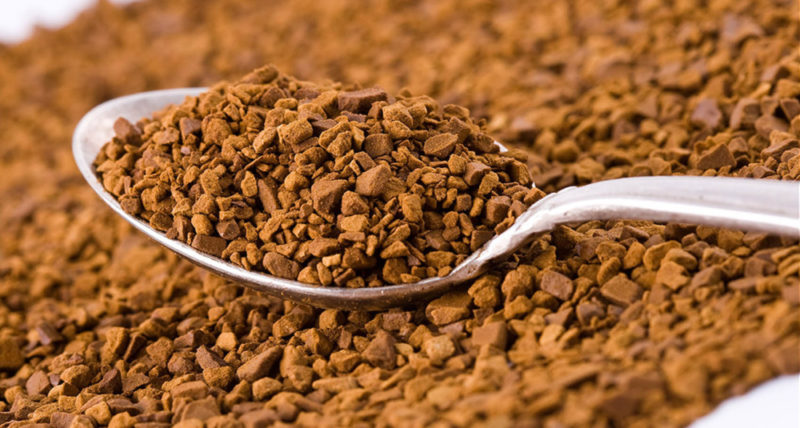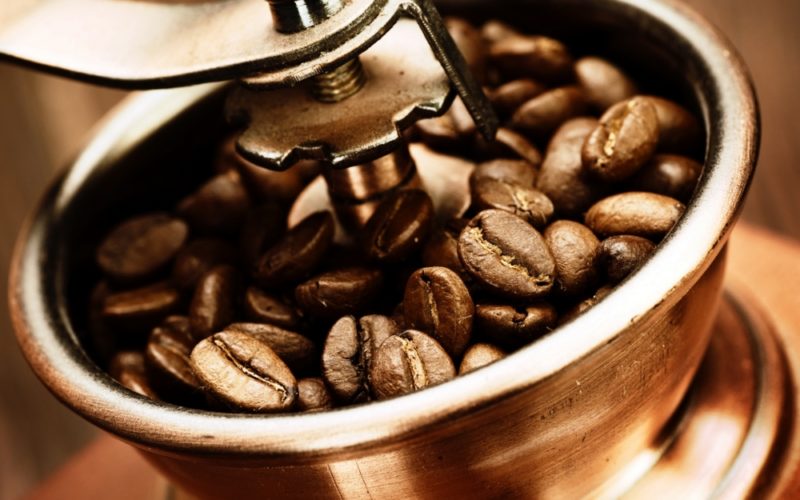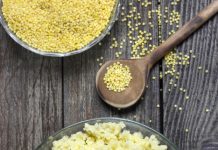It is difficult to immediately answer the question of how many calories are in coffee without knowing the details. Indeed, this method will be influenced by the method of preparation of the drink, and all the additives used (sugar, milk, cream, etc.). Therefore, we analyze in more detail the calorie content of the most popular coffee cocktails and pure coffee.
Material Content:
Chemical composition and nutritional value
Most often, modern coffee lovers use a soluble product. It allows you to instantly get a cup of delicious aromatic invigorating drink without a coffee grinder, Turks and other special accessories.
If we talk about the nutritional value of such a dry product, then 100 gr. it turns out:
- about 7 g of carbohydrates;
- just over 3.5 g of fat;
- and about 14.8 g of protein.
Instant coffee also contains phosphorus, iron, calcium, vitamin B2 and PP. Therefore, with proper and not too frequent use, this drink can even be called beneficial for the body.
How many calories in coffee
Many losing weight are sure that if you supplement each snack with a cup of coffee, then there will be no harm. A drink also usually is not recorded in a special calorie counting table ... But who are we so deceiving?
The calorie content of coffee must be taken into account along with food. In some cases, it can be quite high.
Soluble
Calorie content of instant dry coffee is 93 kcal per 100 g of product. Of course, no one will brew such an amount at a time. Typically, 3 to 10 g of product is used per cup.
As a result:
- The calorie content of a cup of sugar-free drink, on average, is about 7 - 10 kcal. But in this form it is used extremely rarely.
- Most often, granulated sugar is also added to coffee.In this case, the calorie content of the cup increases to about 60 kcal (taking into account two tablespoons of sugar).
- If various artificial sweeteners are used, the indicator of interest will also change up or down.
- If, in addition to sweet grains, about 50 ml of fat milk is added to a cup of black instant coffee, the figure will be approximately 90 kcal. The calculation is based on a capacity of 200 - 250 ml.
- The maximum calorie content will be obtained if sugar and cream are found in a cup of coffee. The discussed indicator will increase to 106 - 110 kcal per cup.
In kind
In a small spoon of natural grain coffee contains 6 - 8 kcal. This is approximately 250 - 270 kcal per 100 g of product.
One such spoon is usually used to get 100 ml of the finished drink.
In the composition of coffee beans, in addition to fats, proteins and carbohydrates, there are also useful minerals and essential oils. Interestingly, grinding and roasting reduce the energy value of grains. Additionally, this indicator decreases during cooking.
- As a result, in a serving of "Americano" (this is 50 ml of drink) contains only 2 kcal.
- In the double "espresso" - 4 - 5 kcal.
Of course, the calorie content of coffee with milk is significantly increased. Typically, coffee houses use a dairy product with a high fat content of 3.2%. 100 ml of such a product contains about 60 kcal. As a result, the caloric content of a cup of natural freshly brewed coffee will depend on how much milk is added to it. Some coffee lovers like to use only a few drops, while others dilute the drink greatly.
- If you add non-fat 10% cream (instead of milk) to your glass of ground natural coffee, then it will turn out to be even more high-calorie. In 1 tbsp. l such a dairy product contains 23 kcal. Usually two spoons are added to a large cup at once.
- Cappuccino is traditionally served in a large glass, approximately 180 ml. A serving of such a sugar-free drink contains 62 kcal.
- In latte without sugar (per 200 ml) - 97 kcal, and with two tablespoons of sand - 154 kcal.
Daily intake
It is believed that it is optimal to drink no more than 2 - 3 cups of coffee per day, because this drink contains a large amount of caffeine. But you need to remember that the portion may vary depending on the state of human health. For example, if a coffee lover has heart problems, then most likely the doctor will recommend that he reduce the amount of coffee consumed or completely replace it with other invigorating drinks.
The benefits and harms of the drink for the body
Coffee has both beneficial and harmful properties. So, for example, a high caffeine content makes the drink a real invigorating potion. After him, a person feels more active, more energetic.
Besides:
- coffee protects against stress and overwork;
- is a natural source of antioxidants;
- prevents the development of diabetes;
- activates the work of the stomach.
But the frequent use of the drink in question can negatively affect the functioning of the nervous system. It is not recommended to drink coffee for any heart problems, high blood pressure. Also, the drink is able to flush calcium and some vitamins from the body.
Some types of coffee drinks are very high in calories. This indicator is especially important to consider during a diet.
















